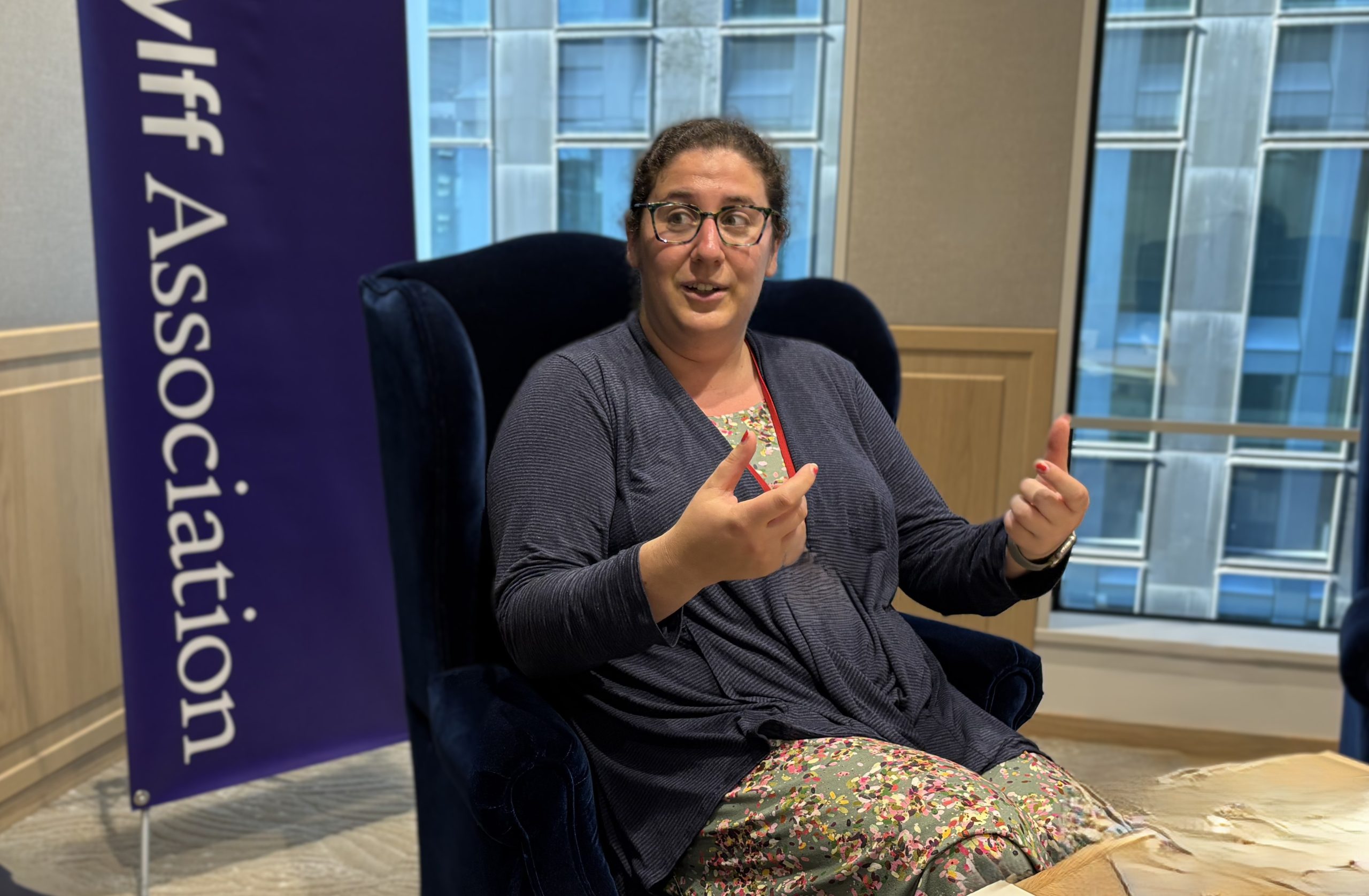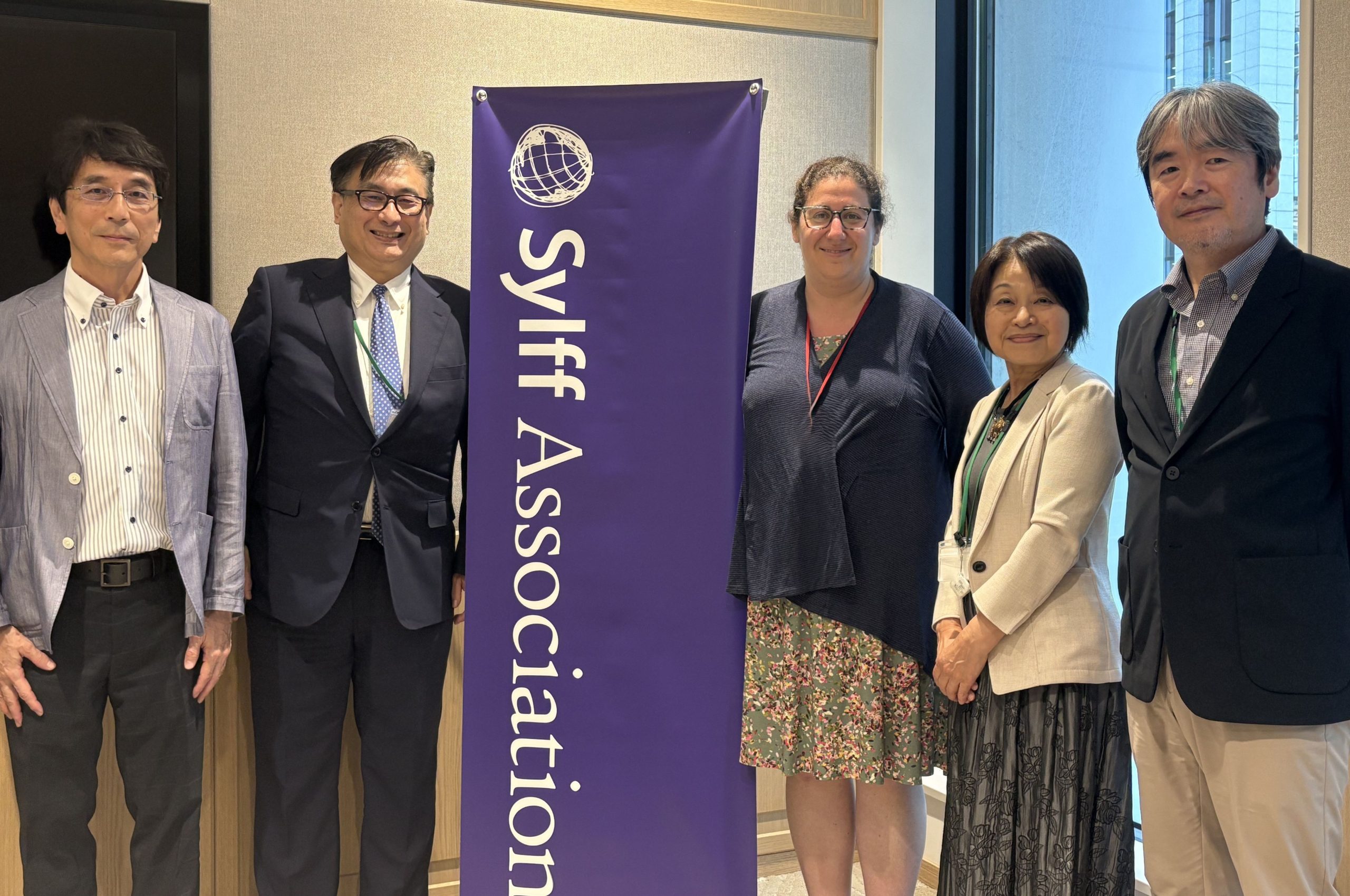Sylff News
Jul 10, 2025
Fletcher Cyber Expert Discusses Bilateral Security Issues during Japan Visit: Sylff@Tokyo
On June 27, the Sylff Association secretariat had the pleasure of hosting Josephine Wolff from the Fletcher School of Law and Diplomacy at Tufts University, where she holds multiple roles: associate professor of cybersecurity policy, associate professor of computer science and engineering, and director of the Hitachi Center for Technology and International Affairs.
 A leading expert in both computer science and technology policy, Wolff was visiting Japan to engage with cybersecurity professionals—meeting with defense officials at the National Institute for Defense Studies, holding discussions with specialists at the University of Tokyo, and reconnecting with many Fletcher alumni.
A leading expert in both computer science and technology policy, Wolff was visiting Japan to engage with cybersecurity professionals—meeting with defense officials at the National Institute for Defense Studies, holding discussions with specialists at the University of Tokyo, and reconnecting with many Fletcher alumni.
“Japan is one of our biggest sources of international students,” Wolff noted, “and I’ve spent the week visiting our former students who’re now working in the Japanese government and industry.”
Fletcher offers an interdisciplinary program that equips students with both technological literacy and a strong foundation in public policy—skills that are increasingly vital in combating cybercrime. Wolff highlighted that several Japanese alumni of the program are now spearheading a police task force focused on online scams targeting the elderly and other types of financial fraud.
Navigating the Complex Landscape of Cyber Threats
Cyberattacks with significant social impact are rapidly becoming a national security concern for governments worldwide. “Online fraud isn’t just about theft,” she explained. “Sometimes, money is being stolen to fund programs like North Korea’s weapons development. Ransomware has also been linked to financing hostile states, posing threats to the entire system of economic statecraft.”
Wolff cautions, though, against framing such incidents in overly militaristic terms. “Using language like ‘gray war’ can escalate a situation unnecessarily. Once you label something as war, it demands a very specific set of responses. My interest is in getting away from that language and focusing on what would be a more proportional response.”
She argues, for instance, that Russian interference in the 2016 presidential election would fall short of acts of war. “That doesn’t mean it’s not serious or that we don’t need to respond to it. But if the threat is about manipulating people’s ideas, we don’t need to involve the armed forces.” Instead, she says, efforts should be made to enhance media literacy, provide tools for online safety, and seek accountability from the big platforms.
Threats to Infrastructure and the Policy Response
There are operations, however, that feel closer to a prelude to war. “The main threat from China is not influence operations,” she emphasizes. “We’re more worried about potential attacks on critical infrastructure, and this calls for a very different set of protections.”
A military response would be considered only in the event of a truly severe incident, however. “If all the power in the United States were shut down, we would regard that as an act of war. But we’re not going to start dropping bombs if a website gets defaced.”
There can be many possible responses if a pipeline is shut off or the water supply is disrupted, including economic sanctions. “But this is a very challenging area for policymakers, because nobody is really clear on where the threshold is.”
As the internet of things continues to expand, Wolff warns of the growing risk of cyberattacks affecting physical systems. “With more devices connected and decisions outsourced to artificial intelligence, attacks could affect not just your laptop or phone; cars and ships might crash due to tampered navigation systems. This goes beyond the typical scope of ransomware.”
Despite these concerns, Wolff remains cautiously optimistic. “We should take some comfort in the fact that we haven’t yet seen the catastrophic cybercrimes we often fear. We’ve watched Russia fight a war for years now without being able to shut down Ukraine’s power grid. Honestly, I think Russia would have done so by now if they could, so that’s not a small victory.”

The Sylff Association secretariat deeply appreciates Wolff’s visit and is encouraged by the high level of expertise within the Sylff community—not only in advanced technology but also in shaping effective public policy. We look forward to welcoming more fellows and other visitors from Sylff institutions in the future. (Compiled by Nozomu Kawamoto)